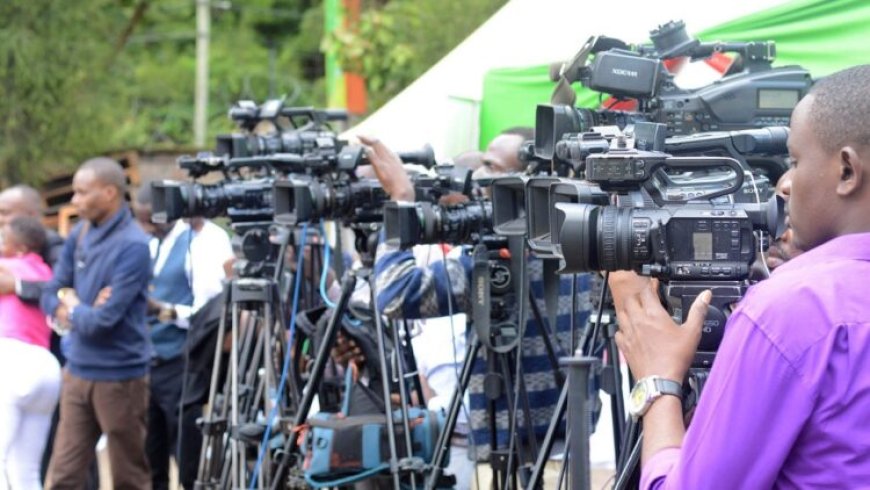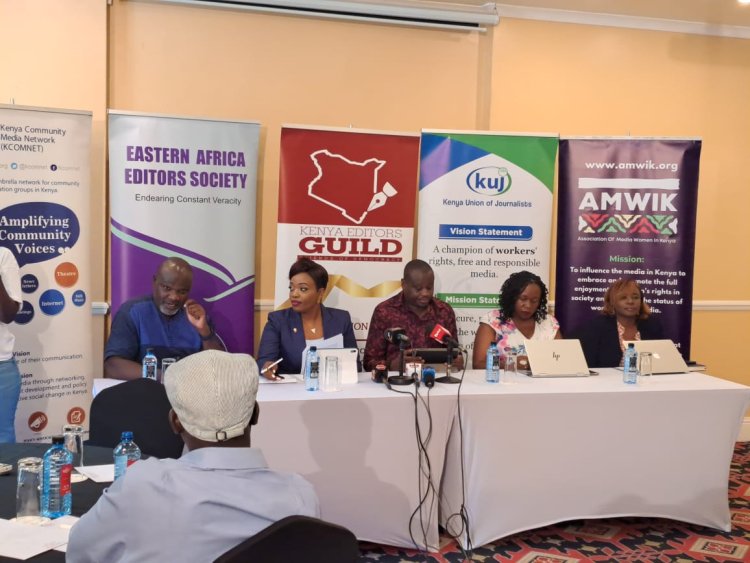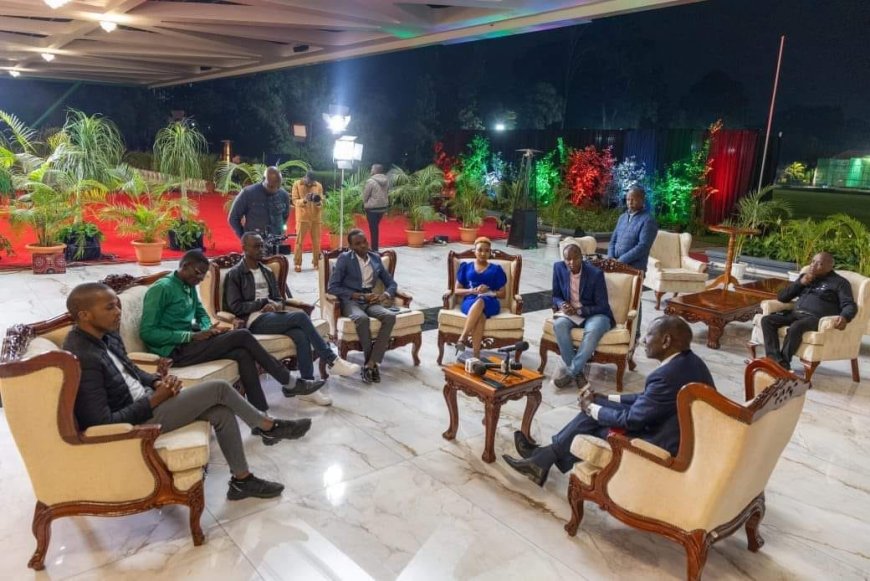Kenyan Journalists Unveil Plans To Create Platform To Engage Gen Zs
The Kenya Media Sector Working Group (KMSWG) announced its bid to enhance coverage of what has been viewed as a critical segment of Kenya's vibrant society

With the rise of the Generation Z group of Kenyans who have been leading the charge in demanding accountability from President William Ruto's government, there has been however an underreporting of the young people of our country across media platforms for a while...until now.
On Monday, July 8, the Kenya Media Sector Working Group (KMSWG) announced its bid to enhance coverage of what has been viewed as a critical segment of Kenya's vibrant society through various media platforms, both mainstream and digital.
According to a press statement seen by Viral Tea, the group is mulling plans to set up a platform where Gen Zs, among all Kenyans, will engage on how best to shape the country, moving forward.
"We will shortly announce a comprehensive plan to develop a platform where Kenyans including Gen-Zs will engage on critical issues affecting the nation," the statement read in part.

Stakeholders from the Kenya Media Sector Working Group addressing the media on March 13, 2024. /KENYA EDITORS GUILD
However, it is yet to be determined if the platform will operate through both mainstream and digital media platforms as well as social media and whether established media channels, upcoming ones, or both, will be considered in its development.
Despite being an upcoming digital media house, Viral Tea, a rapidly rising platform in the 2020s decade, has told numerous stories of Gen Zs making their mark in whatever sector in the country, from entrepreneurship to the media space itself while building a platform that caters to the demands of Gen Zs and millennials- our biggest audience.
The KMSWG further underscored the media's vital role in this national conversation, stating that "We are committed to providing accurate, balanced, and responsible reporting that reflects the diverse perspectives within Kenyan society."
"We recognize that the recent protests were decentralized, and without leadership or spokespersons in the traditional fashion. However, we are dedicated to continually engaging this critical segment of our society through in-depth, clear, and comprehensive coverage of their vision for Kenya," the statement added.
The media group acknowledged as well as expressed its encouragement by the government's initial gestures of listening and willingness to engage with Gen Zs and the public.
"We are aware that young people comprise a huge majority of our population today, and indeed have a huge stake in our nation’s future.
"The KMSWG stands ready to facilitate genuine and transparent engagement on the key issues already put on the table. Open dialogue is essential for finding solutions, and the media will play a crucial role in fostering this exchange," the group added.
On Friday, July 5, President William Ruto became the first African president to co-host an X Space, though there was significant dissatisfaction amongst Kenyans who attended, possibly the reason behind KMSWG's next move.
While it was expected that digital media houses would be charged with hosting the space given President Ruto's meeting with digital journalists on Sunday, June 30, the President had opted to host it himself through his account but encountered challenges before seeking the help of influencer Osama Otero to co-host the platform.
Some Kenyans believed that hosting the President independently, without State House's involvement, would have brought a sense of independence and that the level of questions fielded to him would be tougher and no-holds-barred.
KMSWG's next move, while upholding its belief that a strong and independent media is essential for a healthy democracy, is a sign of its commitment to working with, not just Gen Z, but also the government and all Kenyans "to ensure our media continues to be a credible source of information, a platform for diverse voices, and a force for positive societal change."







